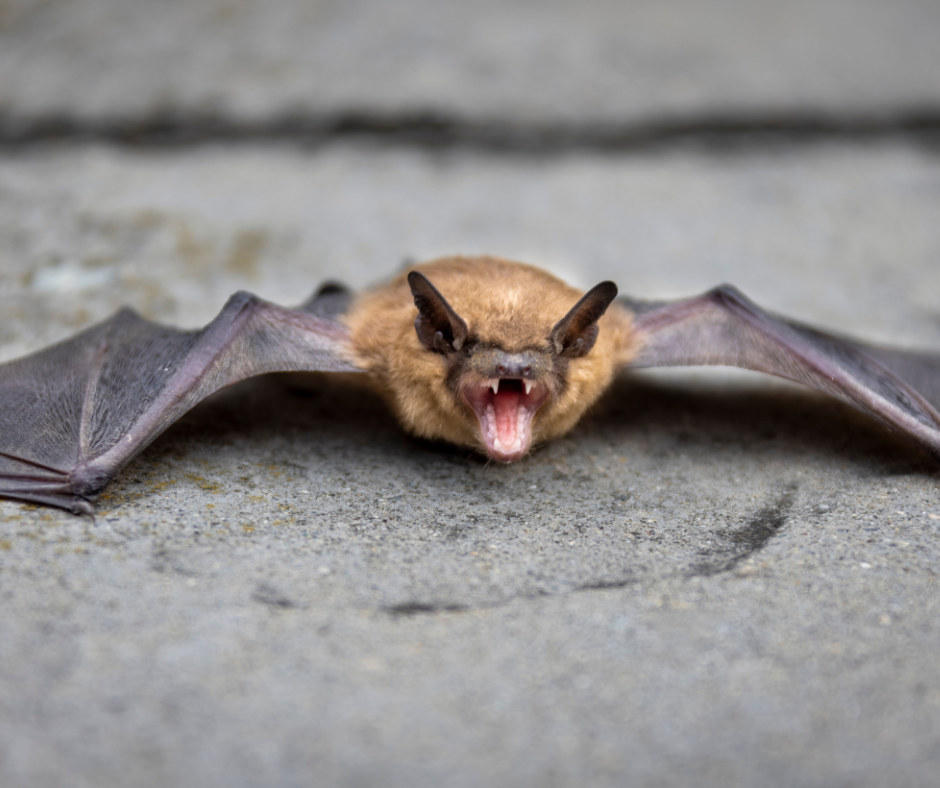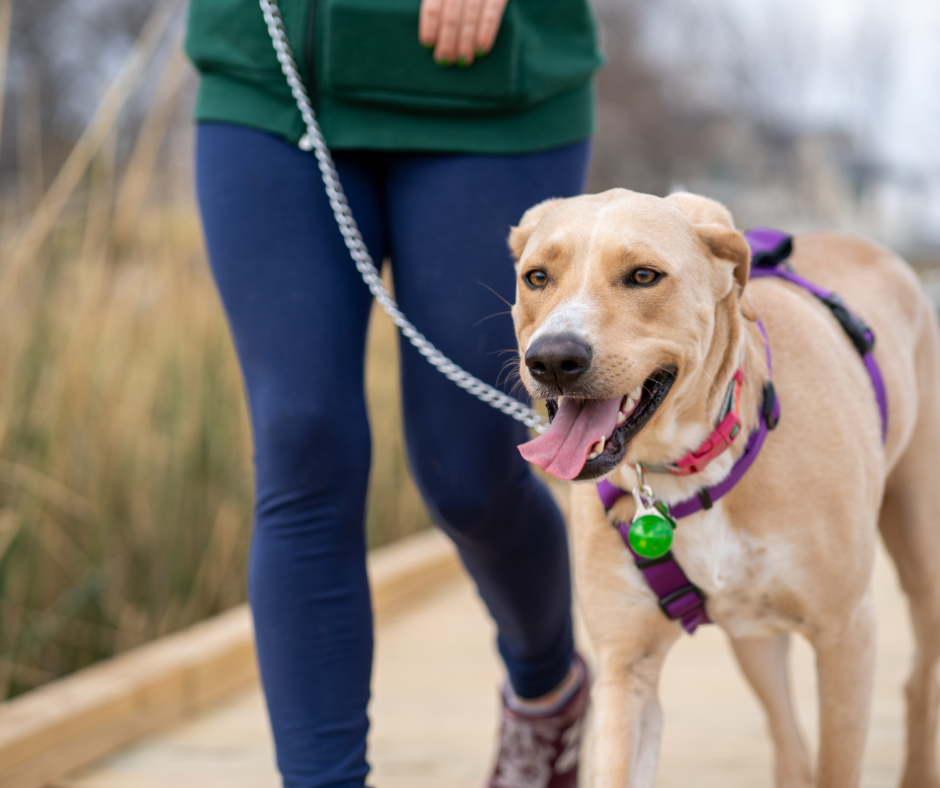Rabies is a deadly, but preventable, disease caused by a virus that infects the central nervous system. The rabies virus (RABV) is only present in the saliva and nervous system tissue of infected animals, and is spread through direct contact with an infected animal’s saliva or central nervous system tissue, most often through bites and scratches from the infected animal. RABV can also spread through contact of the virus through the eyes, mouth, or nose.
Report Animal Bites or Rabid Animals
The Prince William Health District works in collaboration with local Animal Control officials for all cases.
- All exposures, including animal bites or scratches, involving humans must be reported to your jurisdiction’s animal control service.
- Exposure of domestic animals to wild animals should also be reported. Wild animals that have exposed a person or pet must be euthanized and tested for rabies; if the animal is not available for testing, it must be considered rabid.
Report any potential exposure to the appropriate animal control service:
- Prince William County residents may make reports with the Prince William County Police Department’s Animal Control Bureau at 703-792-6500
- Manassas City residents may make reports with the Manassas City Police Department at 703-257-8009
- Manassas Park residents may make reports with the Manassas Park Animal Control Division at 703-361-1136
If you are bitten or exposed to a potentially rabid animal, please do not attempt to contain the animal yourself. Instead, please contact the appropriate animal control service.
If you have questions or concerns please contact us at PWHDRabies@vdh.virginia.gov.
What is Considered Exposure?
The Virginia Department of Health defines a rabies exposure as “any circumstance where wet saliva or [central nervous system] tissue from a rabid or suspected rabid animal did have, or may have had, direct contact with mucous membranes or a break in the skin of a domestic animal.” Since the rabies vaccine is not 100% effective, all mammals, including pets, can potentially carry the rabies virus (RABV).
The rabies virus can be transmitted through bite or non-bite exposure:
- Bite exposure: breaking of the skin by teeth of an animal
- Non-bite exposure: contamination of open wounds, abrasions, mucous membranes (eyes, mouth, nose), or scratches
What Happens if My Pet Bites a Human?
All animal bites involving humans must be reported to the Animal Control Services in your jurisdiction.
At the discretion of the local health director, any animal that may have exposed a person shall be confined under observation for 10 days at the expense of the owner or custodian. An animal that is confined should be kept in a building, pen, or some other escape-proof enclosure. The animal cannot be removed from the property unless on a leash and under the control of a responsible adult.
Once the animal has completed its observation, the owner must verify the health of the animal by calling the rabies line at (703) 792-5363 or by emailing PWHDRabies@vdh.virginia.gov.
Rabies in Animals
Only mammals can contract rabies. Approximately 90% of all confirmed rabies cases found in the United States are from wildlife. Wild animals that are at a high risk of carrying the rabies virus includes raccoons, skunks, foxes, and bats.

Rabies can also be contracted by domestic animals such as cats and dogs, and livestock such as cattle, horses, and goats.
Bats are the leading cause of exposure to rabies in the US. If you find a bat in your home, it is highly recommended that you file a report with Animal Control Services because their bites are often small and not visible to the human eye.
Birds, fish, reptiles, and amphibians cannot contract or transmit rabies.
Signs an Animal May be Rabid
- Excessive drooling (saliva)
- Animal behaving aggressively
- Animal that is tamer than usual
- Animal having trouble moving as expected
- Animal biting at imaginary objects
- A bat on the ground
If you believe an animal may be rabid, safely leave the area and contact the local animal control services.
Prevent Exposure
You can protect the health of your family and pets by practicing safe behaviors:
- Ensure your pets are up to date on their rabies vaccines.
- Avoid letting your pets roam freely under no supervision.
- Do not leave garbage or food outside that can attract wild animals.
- Enjoy wild animals from a distance and never keep them as pets.
- If you or your pet is bitten by a wild animal, report the incident to your local animal control service as soon as possible.
- More information on the rabies virus and steps to control the spread can be found at the Virginia Department of Health and the Centers for Disease Control.
What Should You Do if You or Your Pet(s) Are Bitten?
- Do not attempt to contain or kill an unknown animal.
- Wash the wound(s) thoroughly with warm soapy water and contact your doctor or veterinarian.
- Make note of the location of the incident and provide as many details possible of the animal (ex: species, breed, size, if the animal had a collar)
- Contact animal control to report the incident so it can be investigated.
Take Action If Exposed
If you are bitten by an animal, your doctor and/or the health department will evaluate your exposure to determine appropriate aftercare. This may include rabies post exposure prophylaxis (PEP), which is given on day 0, which may or may not be the day of exposure, then on days 3, 7, and 14. Please consult your doctor or the health department regarding PEP.
Virginia Code states that any pet that comes into contact with a potentially rabid, wild, or stray animal may be subject to a confinement or “quarantine” period. Dogs and cats without a current rabies vaccination who are potentially exposed to the rabies virus are subject to six months of strict confinement/isolation or euthanasia. For those pets with current rabies vaccine, this observation period is far less strict, and only 45 days in length. Find more information about Virginia’s rabies laws and regulations.
Information for Veterinarians
Saff that regularly interact with animals are advised to receive the pre-exposure prophylaxis (PrEP) rabies vaccine. In the event of a rabies exposure, you will be evaluated to receive the rabies booster.
If you or a staff member have been exposed to an animal or you suspect an animal may have been exposed to rabies, please report the incident to the appropriate animal control service.
Resources
Rabies Control
Dog running at large / Leash Requirement Ordinances

